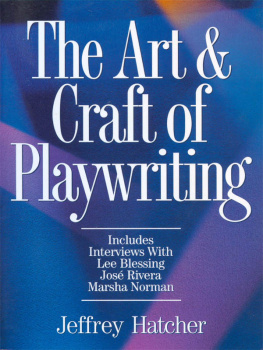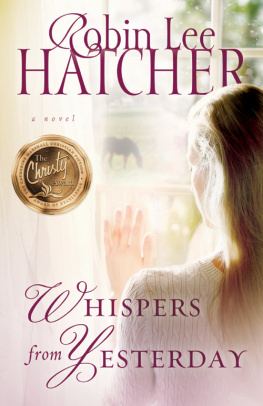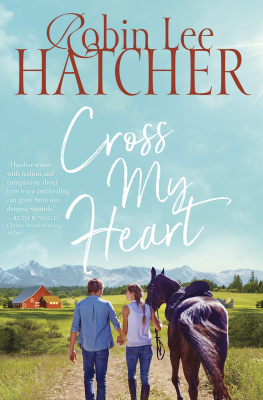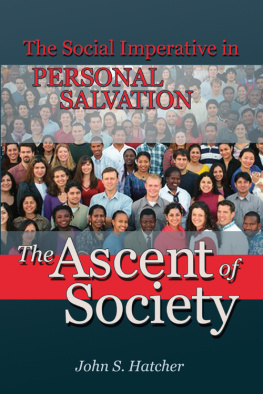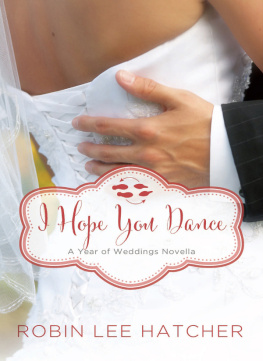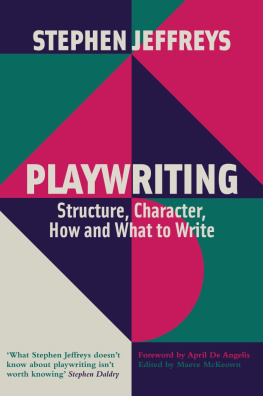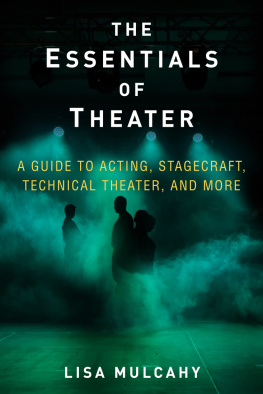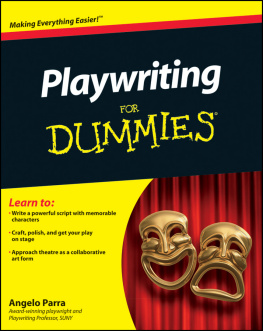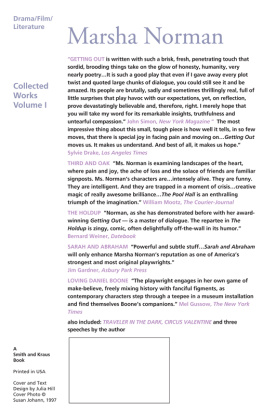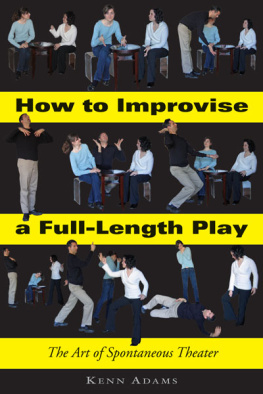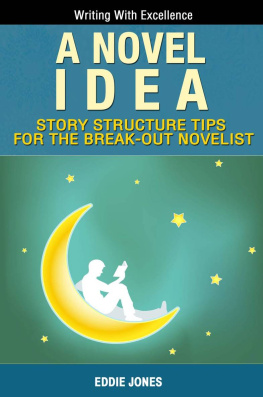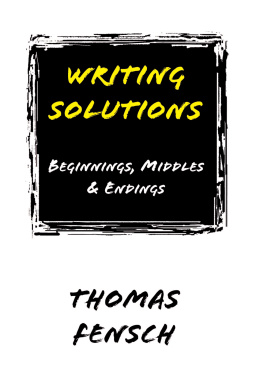The Art &
Craft of
Playwriting
Jeffrey Hatcher

About the Author
Jeffrey Hatcher is the author of numerous plays, including Three Viewings, Scotland Road, The Turn of the Screw, SMASH, Sockdology, Compleat Female Stage Beauty, Mother Russia, Hanging Lord Haw-Haw and What Corbin Knew. His plays have won many awards and have been produced throughout the United States, Canada, Mexico, Great Britain, Australia, Germany, Chile, Japan, and Malaysia. He taught for six years at the Playwrights' Center in Minneapolis, and has been a guest lecturer and play wright-in-residence at many colleges and theater centers, such as Carleton College, Macalester College, Denison University, and The Eugene O'Neill Theater Center. He has written TV movies for the Peter Falk series Columbo and is currently adapting his play Three Viewings for film.
The Art and Craft of Playwriting. Copyright 1996 by Jeffrey Hatcher. Printed and bound in the United States of America. All rights reserved. No part of this book may be reproduced in any form or by any electronic or mechanical means including information storage and retrieval systems without permission in writing from the publisher, except by a reviewer, who may quote brief passages in a review. Published by Story Press, an imprint of F+W Publications, Inc., 4700 East Galbraith Road, Cincinnati, Ohio 45236. (800) 2890963. First paperback edition 2000.
Other fine Story Press books are available from your local bookstore or direct from the publisher.
10 9 8
Library of Congress has catalogued hard copy edition as follows:
Hatcher, Jeffrey.
The art and craft of playwriting / by Jeffrey Hatcher.
p. cm.
ISBN-13: 978-1-884910-06-7 (hard cover)
ISBN-10: 1-884910-06-8 (hard cover)
1. Playwriting. 2. DramaTechnique. I. Title.
PN1661.H33 1996
808.2dc20
ISBN-13: 978-1-884910-46-3 (pbk: alk. paper) 9552373
ISBN-10: 1-884910-46-7 (pbk: alk. paper)
CIP

Designed by Clare Finney
The permissions opposite this page constitute an extension of this copyright page. Caution: Professionals and amateurs are hereby warned that the plays listed on the opposite page are subject to a royalty. They are fully protected under the copyright laws of the United States of America, of all countries covered by the International Copyright Union (including the Dominion of Canada and the rest of the British Commonwealth) and by the Universal Copyright Convention and all countries with which the United States has reciprocal copyright relations.
Permissions
The excerpt from Who's Afraid of Virginia Woolf? by Edward Albee is reprinted by permission of the William Morris Agency, Inc. on behalf of the author. Copyright 1962, renewed 1990 by Edward Albee.
The excerpt from Six Degrees of Separation by John Guare, copyright 1990 by John Guare, is reprinted by permission of Vintage Books, a division of Random House, Inc.
The excerpt from Come Back, Little Sheba by William Inge is used by permission of Grove/Atlantic, Inc. Copyright 1949, 1950, 1951 by William Inge (acting edition). Copyright 1976, 1977, 1979 (in renewal) by Helene Connell.
The excerpt from Betrayal by Harold Pinter is reprinted by permission of the Lantz Office on behalf of the author. Copyright 1973 by Peter Shaffer.
The excerpt from Equus, copyright 1973, 1974 by Peter Shaffer. All rights reserved. For performance rights, contact Samuel French, Inc. All other enquiries concerning rights should be addressed to: The Lantz Office, 888 Seventh Avenue, New York, NY 10106.
The excerpt from True West, copyright 1981 by Sam Shepard, from Seven Plays by Sam Shepard, and is used by permission of Bantam Books, a division of Bantam Doubleday Dell Publishing Group, Inc.
Acknowledgments
This book began when Edward Stern, Artistic Director of Cincinnati Playhouse in the Park, selected my play Scotland Road to premiere there as the winner of the 1993 Lois and Richard Rosenthal New Play Prize. While we were rehearsing in Cincinnati I met Lois and Dick, and after the play opened, we kept in touch over the phone. A few months later Lois asked me if I would be interested in writing a playwriting text for Story Press. I'm grateful to Lois for this opportunity. Working on this book has proved to be a kind of refresher course in Playwriting 101. While I was reading plays, researching other texts, talking to writers and thinking about drama, I got a second education in the profession.
Many people deserve a lot of thanks. Lois and Dick Rosenthal, of course. Jack Heffron and Bob Beckstead at Story Press. John B. Santoianni, Charmaine Ferenczi and Jack Tantleff at the Tantleff Office in New York. And Ed Stern for bringing me to Cincinnati.
I'd like to thank a few organizations that support and sustain playwrights: The Dramatists Guild; New Dramatists in New York; the Eugene O'Neill Theater Center in Waterford, Connecticut; and most especially The Playwrights' Center in Minneapolis, which has served as my artistic home for eight years and has provided support, collegiality, security and inspiration to me, my work and the work of dozens of talented playwrights I've had the chance to know, teach, learn from and work with. I'd also like to thank the colleges and department chairs I've worked with over the years. Ruth Weiner and Ed Sostek at Carleton College in Northfield, Minnesota, and Sears Eldredge at Macalester College in St. Paul, Minnesota. There's nothing more invigorating for a playwright than working with eager, energetic, intelligent, talented and imaginative young writers.
Thanks to Lee Blessing, Marsha Norman and Jos Rivera for their wonderful interviews, as well as to the other writers and artists I consulted: Anthony Clarvoe, Bill Corbett, Barbara Field, Kent Stephens, Douglas Hughes, Ben Kreilkamp, Randy Latimer, Kira Obolensky, Tom Szentgyorgyi and Craig Wright.
But a special thanks is due two playwrights who have been great influences on my writing: Gram Slaton, who nagged and provoked me to write plays when I was living in New York and who critically and patiently took me through the endless drafts of my first scripts; and Phil Bosakowski, whose friendship and sly, wise, good humor delighted and sustained me from the day we met in 1990 until his death in 1994. His wife Gay will remember the night at the O'Neill when Phil gave me this bit of advice about a character in a play of mine: It would be nice if he did something.
To all of themand to my wife Lisa, who lives with every draft for the run of the showmy great and good thanks.
Table of Contents
Introduction
The best place on earth is in the back of a theater. It's the aisle behind the last row of seats. The space is a little narrow, and the carpet has worn a bit thin. It's called the Playwright's Alley, and it's where the writer lives during the opening night of a new show. It's where a nervous and excited author shifts, paces, bites his nails and cheers like a fool while the actors onstage speak his words and perform his actions, moving the audience between the stage and that back row to laugh, cry and lean forward in delighted anticipation. There are hundreds of these alleys in the United Statesfrom Broadway to Seattle, from the giant auditorium at Lincoln Center to the smallest ninety-nine-seat hole-in-the-wall in West Hollywood. It's the place where a writer sees his dreams and obsessions come true. The Playwright's Alley is a playwright's home.
The journey to that home is often a long and arduous one, filled with danger and disappointment. There are lonely hours at the typewriter and discouraging trips to the mailbox. There are frustrating attempts at rewrites and torturous hours in the rehearsal halls. There is the slim chance of greatness and the daunting prospect of disaster. But if you have talent, courage, determinationand the ability to grasp and manipulate the skills of this most demanding and rewarding professionyou can reach that glorious alley. Talent will out. You will find your home and fill the house.
Next page
